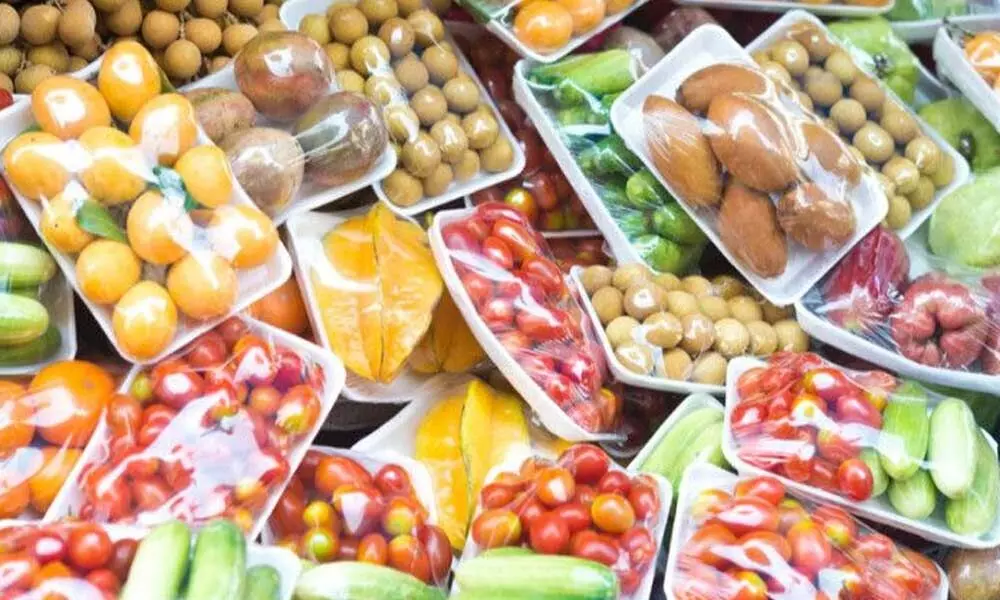NIT AP comes up with nanotech-based method

NIT AP comes up with nanotech-based method
Researchers from National Institute of Technology, Andhra Pradesh, have demonstrated how the nanotechnology can be used to develop food packaging materials which enhance the shelf-life, maintain quality, retain flavour and colour of packed food materials.
New Delhi: Researchers from National Institute of Technology, Andhra Pradesh, have demonstrated how the nanotechnology can be used to develop food packaging materials which enhance the shelf-life, maintain quality, retain flavour and colour of packed food materials.
The findings by researchers in collaboration with Mizoram University have been published in the prestigious peer-reviewed journal of European Food research and Technology. "The research emphasises the role of nanoparticles to provide mechanical stability to packing material and shows how the nano-sensors can be developed to detect pathogens, contamination, pesticides, and allergens and enhances the antimicrobial properties of packing material to prevent food spoilage and contamination," said Tingirikari Jagan Mohan Rao, Assistant Professor, Department of Biotechnology, NIT Andhra Pradesh.
"In addition to this, the role of inorganic nanoparticles in food preservation is to increase shelf-life and release of antioxidants protecting the food from harmful ultraviolet radiations. The research also discusses the food safety aspects related to nanomaterials and follows eco–friendly practices such as proper labelling on the food items, following safety regulation for disposal, to perform cytotoxic studies on humans and animals," he added.
Talking about the effects of nanoparticles, Punuri Jayasekhar Babu from Pachhunga University College, Mizoram university, said, "It is worthwhile to note that the nanoparticles used for the packing materials may migrate into food when it comes in contact with packaging materials and hence, the impact of inorganic nanoparticles should be studied. Also, nanomaterials especially nano packaging should be only permitted after rigorous testing before applying them to food systems." The research also discusses the role of various government agencies in addressing the safety issues, bringing the legislation and regulations on the use and application of nanomaterials.
It highlights how bio-based polymers can be blended with nanoparticles to make more efficient and effective packing materials. "The team explained how confidence can be built among the consumers by maintaining transparency in evaluating the effects of nanoparticles on humans and the surrounding environment and accentuated how researchers and industries should develop products that can easily get public acceptance. If the safety and security issues get addressed, nanotechnology will revolutionize the food processing and packaging industry to a great extent and minimize food wastage," Rao said.
















